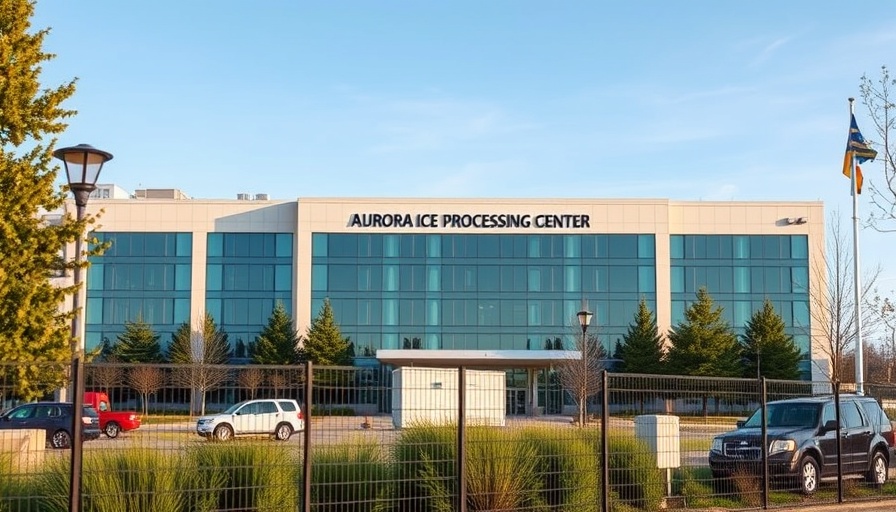
A Deep Dive into Alarm Signals: The State of ICE Detention Centers
The ongoing humanitarian discussions surrounding immigration policies in the U.S. have reached a critical juncture. Recent findings from an investigation by WIRED revealed alarming insights from 911 calls made inside Immigration and Customs Enforcement (ICE) detention centers. This investigation exposes how the calls reflect deeper systemic issues within these facilities, which have become severely overwhelmed due to policy shifts and increased detentions.
Documented Distress: The Chilling Nature of 911 Calls
According to the WIRED investigation, 60% of the analyzed ICE centers reported serious incidents, including pregnancy complications, suicide attempts, and sexual assault allegations. These statistics not only reflect a deteriorating environment within detention facilities but also point towards a troubling transformation in how detained individuals are cared for. Each call paints a story of distress and raises pressing questions about the treatment of some of society's most vulnerable populations.
Historical Context: A Shift in Immigration Policies
To fully grasp the ongoing crisis within these centers, it is crucial to understand the historical context. Over the past few years, U.S. immigration policies have taken a sharp turn towards stricter enforcement, resulting in higher detainment rates. This crackdown has not been accompanied by adequate provisions for health care and mental well-being, exacerbating the conditions for those detained. The investigation shows how this disconnect has led to an increased frequency of emergencies requiring urgent medical assistance.
Counterarguments and Diverse Perspectives on Immigrant Detention
While one narrative highlights the need for humane treatment of detainees, another perspective argues for the enforcement of existing immigration laws. Proponents of stricter measures often neglect to consider the implications of such policies on human rights and the dignity of those affected. Engaging with these diverse perspectives is essential, as it fuels discussion on reforming detention practices without compromising national security.
The Human Cost: Emotional and Psychological Anguish
The reality of living in detention centers extends beyond the physical environment. Survivors' testimonials underscore the emotional and psychological toll exacted by being in such dire circumstances. For many, the experience is marked by trauma—a stark contrast to the narratives promoted by those in favor of stringent immigration enforcement. It begs the question: at what cost do policies aimed at detainment come?
Finding Solutions: Practical Insights and Steps Forward
It is clear that urgent reforms are necessary. Advocates are calling for strategies to improve medical care and mental health services within detention centers. Possible solutions could include the establishment of guidelines for emergency health care, training staff to handle medical crises, and increasing oversight from independent agencies. By shedding light on these critical needs, stakeholders can push for changes that ensure the dignity and safety of all individuals, regardless of their immigration status.
Community Engagement: A Call to Action for Awareness
As marketing managers and professionals who shape public perceptions, there is a significant opportunity to harness your platforms to advocate for these changes. An informed community can drive policies toward better conditions for the individuals in ICE detention centers. Consider sharing informative content on social media, hosting discussions in your organizations, or collaborating with NGOs focused on immigrant rights.
In a world where individual stories often get lost in policy discussions, amplifying voices from within these communities is essential. By standing up for humane immigration practices, marketing professionals can lead the charge toward compassion and responsibility in policy-making.
 Add Row
Add Row  Add
Add 




Write A Comment